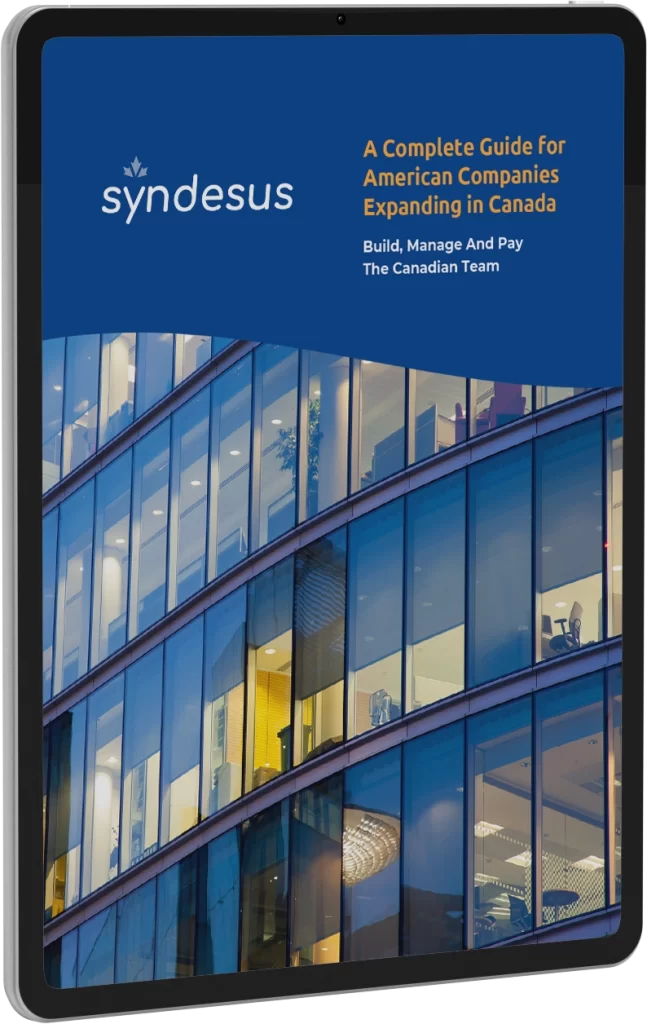In today’s increasingly digital world, the idea of working remotely from a different country has become more feasible and attractive, especially with the various Canadian immigration pathways available. Remote work allows businesses and employees to expand their reach into international markets, making it easier to expand globally. For US citizens and foreign nationals, moving to Canada while keeping their US-based job is a popular option. This blog will guide you through the process of making this move, focusing on the United States-Mexico-Canada Agreement (USMCA) visa, also known as the Canada-United States-Mexico Agreement (CUSMA) visa.

Why Move from the US to Canada?
There are several reasons why US citizens might consider moving to Canada while continuing to work remotely for their US employer:
- Family: Many people move for a spouse or to be closer to family members who live in Canada.
- Political Viewpoints: Some individuals seek a change in political climate and find Canada’s policies more aligned with their personal beliefs.
- Change of Scenery: Canada offers diverse landscapes, from bustling cities to serene natural environments, providing a refreshing change of pace.
- Access to Benefits: Entering Canada as a permanent resident or Canadian citizen provides access to free healthcare, employment opportunities, and other social benefits.
Understanding the USMCA/CUSMA Visa to Work from the US to Canada
The USMCA/CUSMA visa facilitates the movement of professionals between the US, Canada, and Mexico. This visa is particularly beneficial for those who wish to work remotely from Canada while being employed by a US company. It is crucial to understand and comply with Canadian employment laws when working remotely from Canada under the USMCA/CUSMA visa.
In addition to the USMCA/CUSMA visa, individuals may also explore other pathways such as the Express Entry system, which processes a majority of Canadian immigration applications, leading to permanent resident status.
Eligibility Requirements for USMCA/CUSMA Visa
- Citizenship: You must be a citizen of the US, Canada, or Mexico.
- Profession: A USMCA/CUSMA Professional must be qualified to work in one of approximately 60 targeted professions. Depending on the profession, an applicant may be required to provide educational credentials and/or proof of work experience in the field.
- Employment: USMCA/CUSMA Professionals must have pre-arranged employment in Canada in an occupation that matches their qualifications and may need to secure a Canadian work permit. Individuals who wish to perform self-employed work in Canada are not eligible for this category.
Steps to move Canada with Your US Remote Job: A Guide to Canadian Immigration
Check Your Eligibility:
Ensure you meet the requirements for the USMCA/CUSMA visa. This includes having a job offer in a professional capacity and meeting the educational and experience criteria for your profession. An Employer of Record that sponsors visas can facilitate this for you. Consider other immigration pathways such as the Federal Skilled Worker Program, which can also lead to Canadian permanent residence.
Apply for the Canadian Work Permit:
The Canadian visa application process typically involves several steps, including obtaining a job offer from a Canadian employer, securing a Labour Market Impact Assessment (LMIA) if required, and submitting the work permit application. This process can be complex and time-consuming, often requiring detailed documentation and adherence to specific legal requirements.
How Syndesus Can Help with Getting a Canadian Work Permit
Navigating the overall visa process and applying for a Canadian work permit can be challenging. The client company often faces two main problems: managing the complexities of recruitment and maintaining compliance with local employment laws. By outsourcing certain HR functions to an Employer of Record (EOR), companies can focus on recruitment and day-to-day operations while ensuring compliance. The EOR handles all legal responsibilities associated with employment and manages the intricacies of the visa application process, including leveraging provincial nomination programs that can enhance visa approval chances.
Syndesus addresses these challenges by utilizing their experience and a trusted network of immigration lawyers to guide you through every step of the work permit application process.
How an Employer of Record (EOR) Can Help: Understanding the Role of an Employer of Record
An Employer of Record (EOR) can significantly simplify the process of moving to Canada while working remotely for a US company. EOR typically cost varies based on factors like location, employee count, and service offerings, often following a per-employee charge model. Here’s how:
Legal Compliance
A Canadian Employer of Record acts as the legal employer on behalf of your US company, ensuring compliance with Canadian labor laws and regulations as well as offering legal or tax advice. This includes handling work permits, tax filings, and other legal requirements. Alternatively, establishing a foreign entity allows businesses to legally employ workers abroad while managing compliance requirements, which is beneficial for larger companies.
Payroll Management
A Canadian Employer of Record manages and administers payroll, ensuring you are paid in the local currency and that all necessary deductions for taxes and benefits are made. They ensure you are paid in Canadian dollars, simplifying financial transactions and helping you manage your finances more effectively. This eliminates the complexity of dealing with cross-border payroll issues. An EOR also plays a crucial role in managing a global workforce and hiring international talent.
Benefits Administration
A Canadian Employer of Record can provide access to local benefits such as health insurance, retirement plans, and other employee benefits that are compliant with Canadian standards. This ensures legal employment and compliance with local labor laws and local laws.
Risk Mitigation
By handling all employment-related tasks, a Canadian Employer of Record reduces the risk of non-compliance and potential legal issues for both the employee and the employer. Unlike a professional employment organization (PEO) that offers domestic HR services and shares legal responsibilities, or a staffing agency that recruits candidates for temporary needs, an EOR focuses on compliant employment after recruitment.
Streamlined Onboarding
A Canadian Employer of Record facilitates a smooth onboarding process with immigration, soft-landing, and ensuring that all necessary documentation/procedures are completed promptly.
Conclusion
Moving to Canada while keeping your US job can be a rewarding experience, offering a blend of professional stability and personal adventure. By understanding the requirements and steps involved, and leveraging the services of an Employer of Record, you can make this transition smoothly and enjoy the benefits of working remotely from the Great White North.
Whether you plan on moving to Canada temporarily or start a Canadian business, understanding the immigration process and the role of Canada’s provinces is crucial for a smooth transition.
If you have any questions or need further assistance, feel free to reach out. Happy moving!
The content and materials avhttp://moving to canadaailable via Syndesus are for informational purposes only and do not constitute legal advice.


